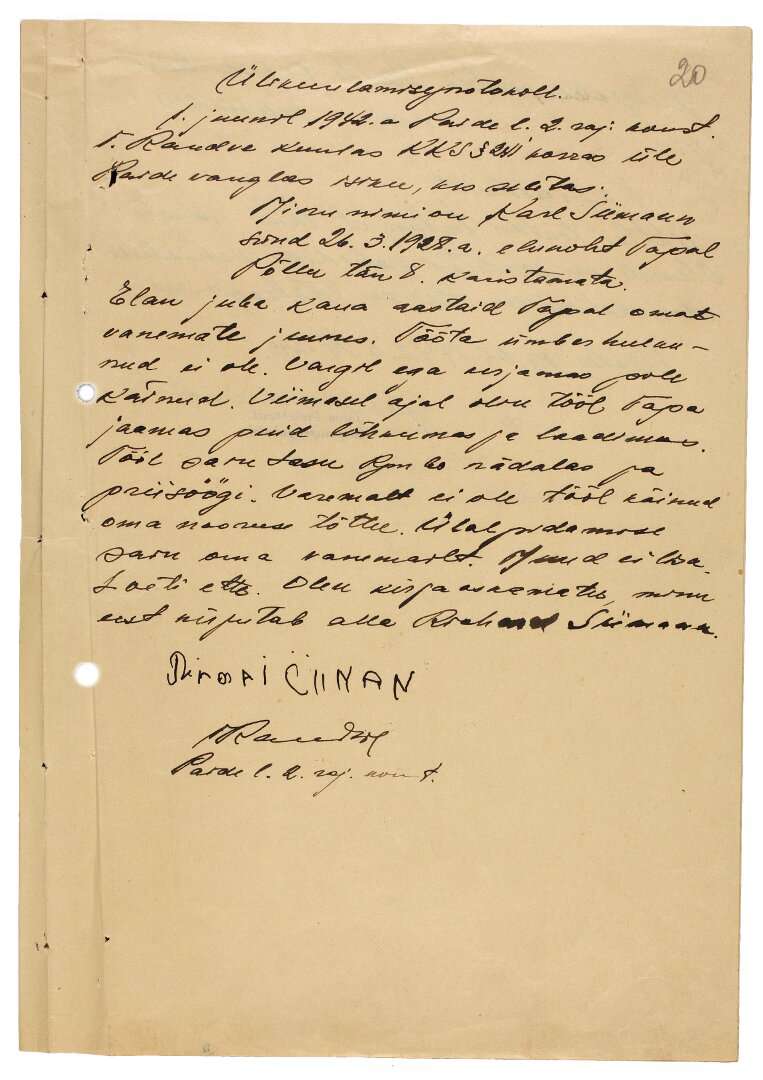The murder of a teenager
On 1 June 1942, Karl Siimann, aged 14, was arrested by the prefecture of the Järva district in his hometown of Tapa and sent to the prison in Paide, where he was interrogated. Although this record of interrogation is an involuntary statement given while in prison and thus is of limited value only as written document, it is one of the very few testimonies of a Rom from Estonia and furthermore the last sign of life of a teenager who in all likelihood did not survive National Socialist persecution.
Although Karl Siimann was able to provide concrete details on his employment, the mayor of Tapa, Jaan Adel, the police assistant Karla Tihemets and Lembit Palundi from Tapa all claimed that he was ‘work-shy’, had harassed other residents and roamed the district. On the same day as the interrogation, Johannes Randrüüt, the prefect of the district of Järva, thus ordered the detention of Karl Siimann until his handover to the SD commandant. Two days later the order was issued to send him to the Harku concentration camp.
The case of Karl Siimann is obviously linked to the broader arrest campaign targeting Roma in Tapa, where at least twelve other Roma were rounded up. Siimann’s arrest was justified with reference to the directives issued by the commandant of Paide on 1 December 1941 and the Dorpat command of the security police and SD on 14 February 1942. In all likelihood, Karl Siimann was one of the 243 Roma executed in Harku on 27 October 1942. Commentary, translated from German into English by Paul Bowman







